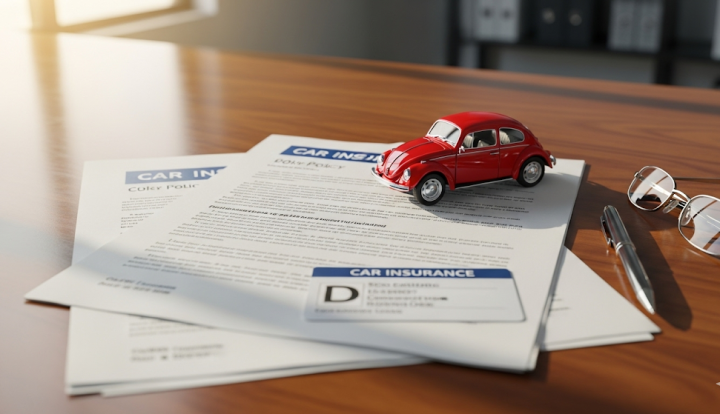Car Insurance: How to Choose the Best Coverage for Your Vehicle
Car Insurance Admin / September 1, 2025

Understanding Car Insurance Types
Liability Coverage
Liability insurance is often mandated by law and covers damages to others in the event of an accident for which you are at fault. This includes both bodily injury and property damage. Understanding the minimum requirements in your state is crucial, as these can vary significantly. While getting by with the bare minimum may seem appealing, consider whether it would adequately protect you financially in a serious accident.
Collision and Comprehensive Coverage
Collision coverage helps you repair or replace your vehicle after an accident, regardless of fault. On the other hand, comprehensive coverage protects against non-collision-related incidents, such as theft, vandalism, or natural disasters. Evaluating the value of your vehicle can guide your decision—if you own a newer or more expensive car, these coverages might be worthwhile investments.
Uninsured/Underinsured Motorist Coverage
This coverage shields you if you are involved in an accident with a driver who lacks sufficient insurance. With many drivers on the roads being underinsured or uninsured, this coverage can provide an added layer of security. Assess your local statistics on uninsured drivers to help determine if this coverage is necessary for you.
Assessing Your Needs
Vehicle Value
The value of your vehicle plays a significant role in determining the type of coverage you should select. For instance, if you have an older car, you might reconsider comprehensive and collision coverage, as the cost of premiums might exceed the potential benefits. Conversely, newer vehicles typically warrant more comprehensive coverage due to their higher replacement costs.
Driving Habits
Your driving habits can also influence your insurance needs. Frequent long-distance travel or heavy commuting may increase your risk of accidents, suggesting a need for more extensive coverage. In contrast, if you primarily use your vehicle for short trips, you might opt for a more basic plan.
Personal Circumstances
Life changes such as marriage, home ownership, or having children can impact your insurance requirements. For example, married individuals often qualify for discounts, while parents might consider policies that include coverage for younger drivers. Regularly reassessing your life circumstances can ensure that your coverage remains appropriate.
Shopping for Insurance
Comparing Quotes
When searching for car insurance, obtaining multiple quotes is advisable. Insurance companies often calculate premiums differently, so comparing offers can help you find the best deal. Online comparison tools can streamline this process, allowing you to quickly evaluate various policies side-by-side.
Discounts and Bundles
Many insurers offer discounts for factors such as safe driving records, multiple policy bundling, or even affiliations with certain organizations. Taking advantage of these discounts can significantly lower your premium costs. Be sure to ask potential insurers about available discounts that may apply to you.
Customer Service and Reputation
Choosing an insurance provider isn’t solely about cost; the quality of customer service and the company’s reputation for handling claims can be equally important. Researching online reviews and ratings can provide insight into the experiences of other customers, helping you make a more informed choice.
Understanding Policy Terms
Deductibles
The deductible is the amount you pay out of pocket before your insurance kicks in. A higher deductible typically results in lower premiums, but it can strain your finances if an accident occurs. Weighing the trade-offs between premium costs and potential out-of-pocket expenses is crucial.
Policy Limits
Each coverage type comes with policy limits, which determine the maximum amount the insurer will pay in a claim. Understanding these limits and selecting appropriate amounts is essential. Insufficient limits could leave you with significant out-of-pocket expenses in the event of a major claim.
Choosing the right car insurance requires careful consideration of your unique circumstances and preferences. Consulting with a professional can provide additional insights tailored to your specific situation.